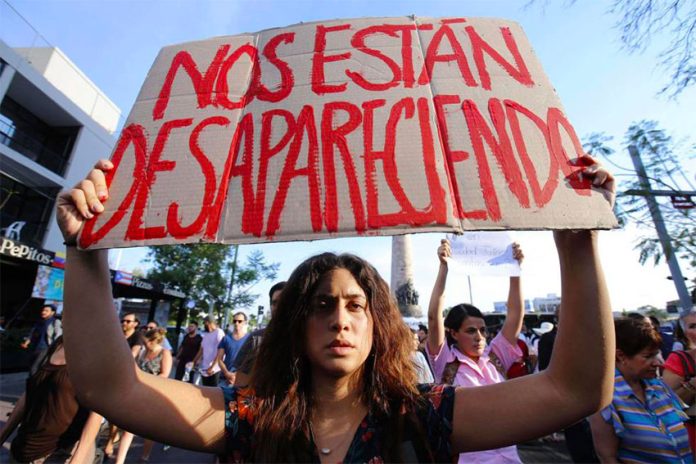The United States will provide assistance to Mexico to develop two genetic databases in 2020, according to U.S. government documents seen by the newspaper Milenio.
The aim of the U.S. government is to encourage Mexican authorities to use DNA records as a tool to combat crime, including people smuggling.
According to the U.S. government, a national DNA criminal database will help Mexico identify criminals, strengthen the investigative capacity of federal and state law enforcement authorities and thus increase conviction rates.
A project to establish a national criminal database was launched during the government of former president Felipe Calderón but abandoned during the administration of his successor, Enrique Peña Nieto.
A second database will compile information related exclusively to the crime of people smuggling.
For the establishment of the databases, the U.S. Department of State will carry out parallel projects in Mexico, Milenio said.
The Bureau of International Narcotics and Law Enforcement Affairs (INL) will have responsibility for the first project, whose intention is to increase the capacity of the federal Attorney General’s Office and five state attorney general’s offices to share DNA evidence collected from criminals and crime scenes to a national genetic database.
A State Department preliminary tender document says that attorney general’s offices in Chihuahua, Guanajuato, Puebla, Chiapas and Yucatán will receive assistance from the INL. The document says that companies interested in participating in the project must present their bids by January 13.
The second project will invest at least US $8 million to establish genetic databases in Mexico, Guatemala, Honduras and El Salvador. Their aim will be to assist the identification of people smugglers and human traffickers that operate in the region.
The funds will come from the budget allocated to the State Department’s Central America Regional Security Initiative, as well as aid money earmarked for Mexico, Milenio said.
The United States House Committee on Appropriations said in a report that a DNA database will be an effective tool against people smuggling and human trafficking.
Mexico’s National Search Commission will also get a significant injection of funds next year.
The Interior Secretariat said the agency tasked with locating the nation’s more than 40,000 missing persons will have a 2020 budget of just under 720.4 million pesos (US $38 million), a 55.5% increase compared to this year. Almost two-thirds of the funds will be passed on to state-based search commissions.
Source: Milenio (sp)
